September 6, 2013
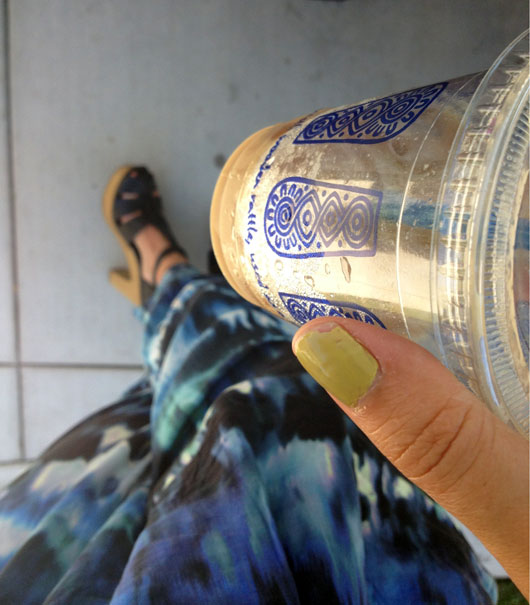 It seems a bit funny that what started off as somewhat of an experiment, laden with much tongue-in-cheek sarcasm, has turned into a complete lifestyle shift and overhaul in the way I look at, think about and consume food. In many ways, since I wrote this post just over three months ago, my whole world as it relates to food, has been turned upside down on its head.
It seems a bit funny that what started off as somewhat of an experiment, laden with much tongue-in-cheek sarcasm, has turned into a complete lifestyle shift and overhaul in the way I look at, think about and consume food. In many ways, since I wrote this post just over three months ago, my whole world as it relates to food, has been turned upside down on its head.
When I started researching ways to “eat clean”, I learned that the idea of eating clean could not come full circle unless you also looked at the animals we eat, and how “clean” they really were, and the entire factory farm system in which the vast majority of our meat and poultry comes from (99% to be exact). After some digging around, I decided to read Eating Animals. The fact that it was written by one of my favorite authors, Jonathon Safran-Foer, intrigued me, and upon learning that he decided to write the book out of a pure quest to find out exactly where the food he feeds himself and his family, comes from, made me want to read the book even more. Let it be noted that after researching and writing the book, he chose to become a strict vegetarian, and raise his new son that way, and while at times the book is written from the obvious tone of a vegetarian, the book in itself is simply a true account of the factory farm system. It was well researched (the book has over 65 pages of notes), but also written in a wonderfully narrative form, including many stories from his childhood, and transcripts from factory workers, farmers, activists and ranchers. I cannot recommend the book enough if you want a rundown of where the majority of our meat, fish and poultry comes from here in America. I read it in just a couple of days it was so fascinating, while at the same time very heart wrenching.
I won’t get into explicit detail of the book, however, I will say that throughout it, I found myself in tears, feeling saddened, angry, frustrated and hopeless. A very brief synopsis of the book will tell you though, that our current factory farm system is disgustingly broken. Bottom line, the current system is bad for the animals, bad for the workers, really really bad for the environment, and scarily bad for us when you find out how animals are raised and “processed”, which means slaughtered.
A few key takeaways from the book
On turkey and poultry genetics: “Not a single turkey you can buy in the supermarket could walk normally, much less jump or fly. They can’t even have sex. Not the antibiotic-free, or organic, or free-range. They all have the same foolish genetics, and their bodies won’t allow for it anymore. Every turkey sold in every store and served in every restaurant was the product of artificial insemination. If it were only for efficiency, that would be one thing, but these animals literally can’t reproduce naturally. Tell me what could be sustainable about that?”
On food health and safety: “About thirty years ago, the poultry industry convinced the USDA to reclassify feces so that it could continue to use automatic eviscerators (during slaughter). Once a dangerous contaminant, feces are now classified as a “cosmetic blemish.”
Our love of chicken in the US: Americans eat 150 times as many chickens as we did only eighty years ago.
On scary viruses: Scientists at Columbia and Princeton Universities have actually been able to trace six of the eight genetic segments of the currently most feared viruses in the world directly to US factory farms.
On farmers: Farmers have lost – have had taken from them – a direct, human relationship with their work. Increasingly, they don’t own the animals, can’t determine their methods, aren’t allowed to apply their wisdom, and have no alternatives to high-speed industrial slaughter. The factory model has not only estranged them from how they labor, but what they produce and how the product is sold.
I could go on because I marked over 100 highlights throughout the book, but for the sake of brevity, I’ll stop there. After reading the book, I have not decided to become a vegetarian, but I have decided to do what I can to support local agriculture and the farmers who are still practicing, or are trying to bring back traditional farm practices and animal husbandry. Aside from meat, I’ve already been figuring out what to do remove my monetary support from Big Agriculture by no longer buying foods made with GMO’s.
Because I’ve made this lifestyle shift so public, by creating an entire Instagram account on the subject, and by writing a regular weekly column over at Babble, plenty of questions, both sincere and rhetorical, come my way on a daily basis. The biggest questions and concerns, again both genuine and rhetorical, all center around 3 topics of discussion.
It’s So Hard and Overwhelming! Indeed it is at first, I won’t lie. It takes some time to focus on learning as much as you can, and then learning some more. But I promise it’s achievable. You see that list of companies and products using GMO’s and you think, what the fuc$ can I buy? I thought the same thing last year when all this GMO noise started surfacing, and knew we were buying and ingesting at least 50% of the brands and products on that list. Now, I feel much more confident and way less overwhelmed though and know what ingredients to look for and stay away from.
It’s So Expensive! It dawned on me the other day that we here in America, on average, pay more for a medium size latte than we do for a supermarket whole chicken, or a slab of meat. How is that right and how is that justifiable? We have grown to support a system that produces a living “product” made of flesh and blood, by the cheapest and quickest means possible in order to yield the biggest profit, so that we can eat it whenever, and as many times a day, as we want. We get what we pay for friends, and as of Friday, we may be getting our chicken for even cheaper thanks to the USDA’s ruling that China can now process our chicken without us even knowing it.
But, You’re A Conservative! Yes, a couple of people have questioned how I could be considering all these changes, if I’m a true conservative. First, I don’t understand how politics and the food I feed my family are intertwined, but if we’re going to go there. I am a true conservative who respects that our country was built on hard work, ethics and independence, and free of as little government interference as possible. One of the most wonderful things about our country was that we came here and were able to sustain ourselves by growing our own food and not having to rely on other country’s imports. Sadly, the traditional way of farming and animal husbandry have fallen by the wayside and is only practiced by a select few, taken over by huge conglomerates who do not have our best interest on their agenda. Farmers have been replaced by corporations and the government is eerily mingled in with the food that comes to our table. As a conservative who believes in what the party used to stand for (let’s not discuss what it has unfortunately become), I take a vested interest in the most important thing I give my family, the food that sustains us. I want to know that I’m supporting real people whose practices helped build and feed this country, and not just huge factories and corporations, and I want to be able to trust that one of the largest branches of our government, the USDA, has my family’s best interest at heart, and is not driven by corporate lobbyists, but other than that, I want them out of the way. Those are what I believe to be traditional conservative values.
What We’re Doing. It is so overwhelming, and right now, it is expensive. And sadly, to eat the way we want to eat is time consuming and takes work, and isn’t even possible to feed the state of California this way, let alone the whole country. But here’s what we’re doing anyhow.
– Going forward, consume products from animals which are truly pastured, fed a vegetarian diet and aren’t injected with antibiotics, which includes eggs, chicken beef and lamb. These types of products are harder to come by, but not impossible, especially in Southern California. After reaching out the other day, I got the names of 4 different local farms all raising truly pastured, grass-fed animals, all within 1-2 hours of our home. They all welcome farm tours and are all proud of the food they’re raising. I was very impressed by Primal Pastures, and their Kickstarter program to help build a farm is such a cool project it gave me chills while watching their video. They’ve already met their goal, and then some, and backers are as far flung as NYC and Europe, not just locally in Southern California. If anything, that gives me hope that there’s tremendous interest in seeing a shift in how we produce and buy food in America, and that plenty of people want better access at a more affordable rate to locally grown, humanely raised meat and agriculture. Also, if you want a quick synopisis of why organic and cage-free don’t mean jack shit, read this little break down on their site.
– Which means I’ll be shopping at a lot more farmer’s markets and small scale chains. No more grocery markets, unless they carry, and some now do, a wider selection of local, sustainable, humanely raised and processed animal products. This is not easy for me. My mother and father both worked for the supermarkets for 25+ years, and their hard-earned paychecks from those markets are what helped to pay for my college education, supplemented by the income I made, also working at a supermarket. This is a huge cultural, emotional and mental shift for me and the way I grew up.
– Read labels, read books and educate myself. After finishing Eating Animals, I picked up Animal, Vegetable, Miracle by Barbara Kingsolver and was blown away when in the first few pages I read this interesting tidbit: “If every US citizen ate just one meal a week (any meal), composed of locally and organically raised meats and produce, we would reduce our country’s oil consumption by over 1.1 million barrels of oil every week. That’s not gallons, but barrels. Small changes in buying habits can make a big difference.” I’m currently compiling, and will include the link here when it’s finished, of 10 books that are most influential in getting you to rethink your food choices.
– Less eating out where I have to wonder where my food came from, less packaged foods with labels to read, and more cooking. And less meat overall. Anyone have a good vegetarian cookbook they can recommend? All hard things that aren’t always convenient, and will be especially hard for the kids. But we’re already starting to talk to them about our choices and why we’re making them. When Taylor asked why we couldn’t go to Subway the other day, I simply told her that I recently found out that the meat they use comes from animals which weren’t treated nicely. I didn’t get into horrendous specifics, and just left it at that, but it was all her 8 year old animal loving mind needed to hear. These kids are a lot smarter, compassionate and wiser than I sometimes give them credit for.
Are there bigger problems in the world? Absolutely. I get riled up at and overwhelmed and depressed at all our country and world faces every day. There’s people starving every single day, who only wish they had the luxury of worrying about organic versus nonorganic. But because other problems do exist, doesn’t mean I should ignore the problems that exist, which I have the power and knowledge to change. Small changes by many or big changes by just a few make an impact, and since we don’t eat in a vacuum, but as friends and families, it’s hard to deny that our food choices don’t have the opportunity to radiate influence.
I’ve been writing this post for so long now I’m wondering if I’ve even made my point or gotten my point across. I hope so. I also hope it hasn’t come off as preachy or ill placed here. Lots of people have asked questions, so I thought I might as well just put it out there, even though food and ethics aren’t my normal MO here.
Just this past Sunday we ate a club pizza at CPK, and after I read the chapter on pigs late that night, I felt sick to my stomach. As I said earlier, I tend to get riled up on a regular basis about one thing or another, from politics to social issues to abortion and religion, and so on, and I come out with a lot of vigor but then lose steam after a while. I get overwhelmed, trying to see how I could actually make a difference. But it’s hard not to see now, how I can.
Ironically, I wrote this post about Food Inc., on my old blog over 3 years ago. It makes me sad to see how little I did to actually change, after getting so riled up back then. Embarrassing even. I guess the only way I can explain the difference from then to now, is that I wasn’t ready to change, but now I am. Even just a few months ago I wasn’t ready. I saw that GMO list and I just sort of waved my hands at it and agreed it was all bad scary stuff, but it was just too much to grasp. Now, it all seems so simple though. I couldn’t fathom not buying my kids Cheez Its because how would we all survive without that easy to pack lunch snack? How could I navigate that list of bad stuff when we already buy so much of it? I just don’t buy it now, and it didn’t end up being as hard as I made it out to be. A lot cheaper in fact. I balked at paying the prices demanded of grass fed beef, but now I see it as a completely fair price to pay, especially considering the swim lessons we pay for, the baseball uniform and bat and mitt, the $90 shoes I buy. I just look at it all differently now, because I’m ready to.
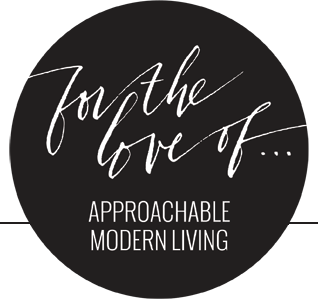













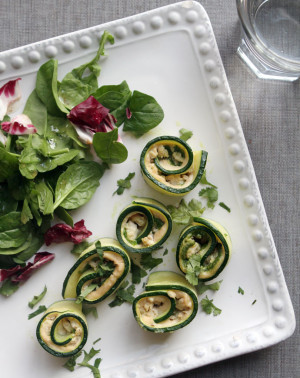
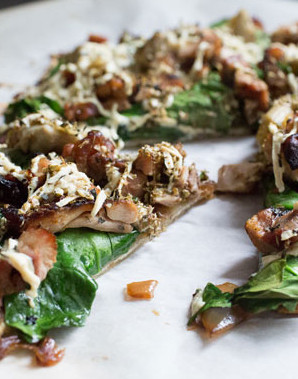
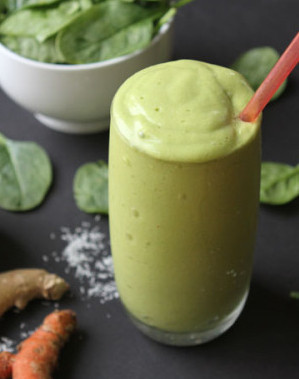

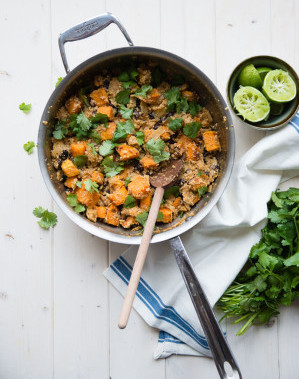
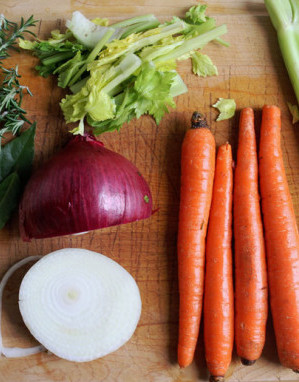


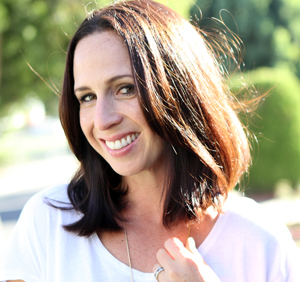


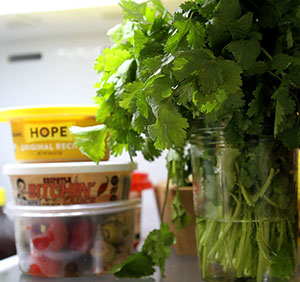







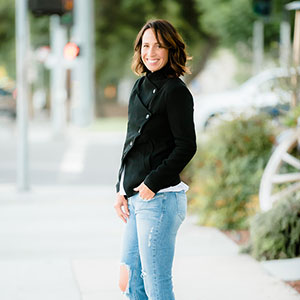



Right. On. Sister!! People always make comments regarding my grocery bill… We buy most of our meat at the farmers market from local farmers that love their animals and treat them great. We buy most of our veggies/fruit at the farmers market too or our local grocery which supports local farmers and carries their produce. Honestly I’ve been saying for so many months now… It’s food, it’s what we put in our bodies. Shouldn’t we all want to know where it comes from and how it’s treated? Thanks for writing this! I’ve been meaning to blog about it but just haven’t gotten around to it. xo – Shey
Such a good read, Andrea! Thank you. I have been watching your food journey from afar for the last few months. I was originally introduced to the concept of GMOs when faced with my little guy’s food allergies, but like you, I was so overwhelmed then I wasn’t ready to change. I knew there was a problem; I just didn’t know what to do about it.
Now, with my current health issues, I am struck again at the need with the need to give my body the best nutrition I can (and my family as well). However, I’m still at the beginning, overwhelmed stage. Living in Missouri, it’s fairly easy to find local, farm-raised produce and livestock. I just need to get on it. Rather than looking at EVERYTHING I need to change, I need to start with one then move on the next, etc.
Looking forward to reading the resources you linked to and following your journey!
My friend, this is an AWESOME post!!! You’ve definitely convinced me that I need to make a change. But I will say that I’m cheap…and so is my husband and this will be a hard road to go down for us. It’s worth it though.
This is such a fantastic post. I loved every word. I loved Animal, Vegetable, Miracle. I also just finished Salt, Sugar, Fat, and it’s made me never want to eat a processed item again in my life. Keep up the good work!
Great post, Andrea 🙂
Our farmers market is amazing when it comes to selling local, grassfed, vegetarian, etc etc eggs and meats and some fish. I buy the eggs there in the summer and from the co-op in the winter. And you wouldn’t think it, but Milwaukee actually has a ton of restaurants that believe in and practice local food sourcing. So that part makes it easy. Plus, Chris and I have a “no chain” practice that we adhere to.
As far as the cookbooks? YES!!!The original Moosewood cookbook (by Mollie Katzen), Veganomicon, Vegan Cooking for Carnivores,anything by Vegetarian Times for the most part, and 125 Best Vegetarian Slow Cooker Recipes. You really only need 1-2 good vegetarian cookbooks and once you get comfortable with cooking meatless, you can adapt so many recipes with meatless options.
I would really, really encourage you to talk to farmers about this instead of trusting documentaries and books vs. peer reviewed science. I’m on the complete opposite fence as you, so I won’t get into “it”, but there’s so much more real research out there. GMO’s are safe and it makes me so sad to see people falling for the propaganda.
Hi there! My uncle and cousins are actually farmers up in Washington State, so I have spoken to some farmers. And while technically there is no research that proves GMO’s are unsafe, yet, I have yet to see any research that proves they are completely safe, over time. Since this is still new territory, and we don’t know what the long term effects could be, I’d rather just not ingest them if at all possible. Thanks for your comment!
I’m a frequent reader and first time commenter but wanted to stop by and say – love this post! I’ve been vegetarian for about four years (for various reasons, won’t go into it so I don’t write a novel!) and I always come across criticism from both veggie and non-veggie people for not doing the right thing etc.
For me it’s all about being aware of where our food comes from and what business we support (or don’t support) when we feed ourselves – I strongly feel that whichever way we decide to eat doesn’t matter as long as it’s an informed decision.
Yep I remember freaking out my first few months of buying groceries and cosmetics (I also avoid products that have been tested on animals and are loaded with chemicals – navigating through all that was stupidly challenging). Start slow, and slowly you’ll get used to it and will easily find a list of staples to pick up and cook from.
Books-wise I’ve got a pile of books I absolutely love, but for simple, family meals I’d start with Mark Bittman’s How To Cook Everything Vegetarian (straightforward, easy recipes that will show you various ways to use any vegetables you have in your fridge, rather than asking you to buy things specifically for a recipe) and def check out Vegetarian Times. Veganomicon is also a good one with amazing recipes, although you may have to pick up some specific ingredients.
If you want to get fancier, Ottolenghi’s Plenty and Delia’s Vegetarian Collection are gorgeous books that are sure to make you drool a bit when you open them!
If you want to continue to support local supermarkets PLEASE mention to them your interest in this type of food. My husband works for a family owned food distributor and we talk all the time about how he would like to be bringing in organic/locally grown/sustainably harvested food but the demand just isn’t there from the consumer – they still look at lowest price. If the consumers vote with their dollar we’ll see more of this in our supermarkets, our restaurants, and may even see a resurgence (it looks like we might be already) in family farms.
Oh and I LOVE the post and reading about all you are learning!! It is very inspiring!!
Thank you so much for sharing your recentl knowledge, and your heart. This has actually been something I’ve been struggling with a little lately so thank you for all of your info!
xo, Courtney
shabbyloveschic.com
AMEN friend! Thank you for this. I am on the same journey. Times are a changing. Like you mentioned, if everyone made ONE small change, that adds up to a pretty big deal! XO.
I’d love for you to do a blog post on what you pack your children for lunch. I’m trying so hard to give my son healthy lunches.
wow amazing post. I have been looking at what I eat for the past couple months and while I am nervous to read the book, I am ready to make a change to how my family eats. Thank you for sharing, this really motivates me to do some research the central valley.
Great read….but I am left feeling JUST if not MORE overwhelmed then before…I have been shifting to no GMO’s, organic, cage free…with products like Applegate.
Spending an arm and leg and now I am reading it isn’t even worth it? AHHHH! So frustrating.
I would SO love a post on what you actually eat and send the kids to school with on the daily. Maybe I could mimic some of that in our lives…since this is so NOT my thing…But for the health of my family it SO needs to be my thing.
Great post girl!
Admittedly overwhelmed by food,
C
Andrea,
I’ve been following you on IG and when you started making these changes I thought, “who the hell does she think she is?” “I don’t need someone to tell me what is good for me.” Well, after reading this post, I was all wrong. There is NO in HELL I want to my faimly to consume this crap. I just don’t understand why our governement is allowing this to happen…Don’t they care about us? Anyways, I was so intrigued that I made my husband read your article. We are both dumbfounded over this that we are going tho make changes and be more aware of what we are eating. Thank you for posting this article…
Anna
I’ve been reading for a few months now – love your blog. This post is fascinating to me because here in the UK it’s totally normal to ‘eat clean’. There are basically no GM foods in the shops and most supermarkets sell local meat. Many restaurants (the indies, less so the chains) sell dishes made from local ingredients. We get a box of fresh organic veg delivered every week (plus eggs, bread, cheese, meat) and concoct random meals based on the contents – again, this is a really common way to shop and cook. I’d no idea there was such a big difference between here and the US. Thanks for sharing, and keep doing what you’re doing!
I’ve been following along on your instagram account and kept waiting for the moment when I had time to go through and read your posts here and on babble about your food changes. A couple years ago I got on this same kick and, sadly, my ambition has dwindled over the years, mostly because it is a lot of work – time, research, money, etc. This post is wonderful and has really inspired me to get back in the game. Thank you!
I’ve been following your clean eating updates for a while now and have really enjoyed watching it all unfold. I laughed out loud reading your first “Gwyneth Made Me Do It” post, since I was definitely one of those people who had an irrational dislike for Gwyneth and her (perceived) cluelessness — and then she had to go and write this book, which actually looks pretty good…
At any rate, I’ve been on a slow road to improving my own eating habits for a while now — there’s always more you can do! — but I think the one thing I read that had the greatest impact on me (at least where factory meat was concerned) was Matthew Scully’s book “Dominion.” If you haven’t read it yet, I *highly* recommend it. I think you’ve mentioned elsewhere that you identify as a Republican, and a Christian; Scully is a former Bush speechwriter (and vegetarian!) who makes a very traditionally conservative, Judeo-Christian argument for animal welfare and the responsibilities we bear to the animals in our care. The book does an excellent job bridging the gap that can sometimes spring up between “liberal tree-huggers” and “conservative gun-toters” by taking the issue out of the contentious realm of politics and grounding it in something like natural law. If you have any conservative family members who are mystified as to why you’d pay extra for that slab of bacon, definitely give them this book — and check it out yourself, of course!
Looking forward to following along on your journey!
The turkey thing is totally true and even applies to some chickens. My boyfriend’s parents raise chickens on their land and a friend of theirs recently bought chickens that are so fat they can’t walk around or have sex like you mentioned. They are simply meant for butchering because they produce more meat and that totally GROSSED us out. After seeing one of those chickens in real life, I won’t ever buy chicken that isn’t cage-free or pasture raised again!